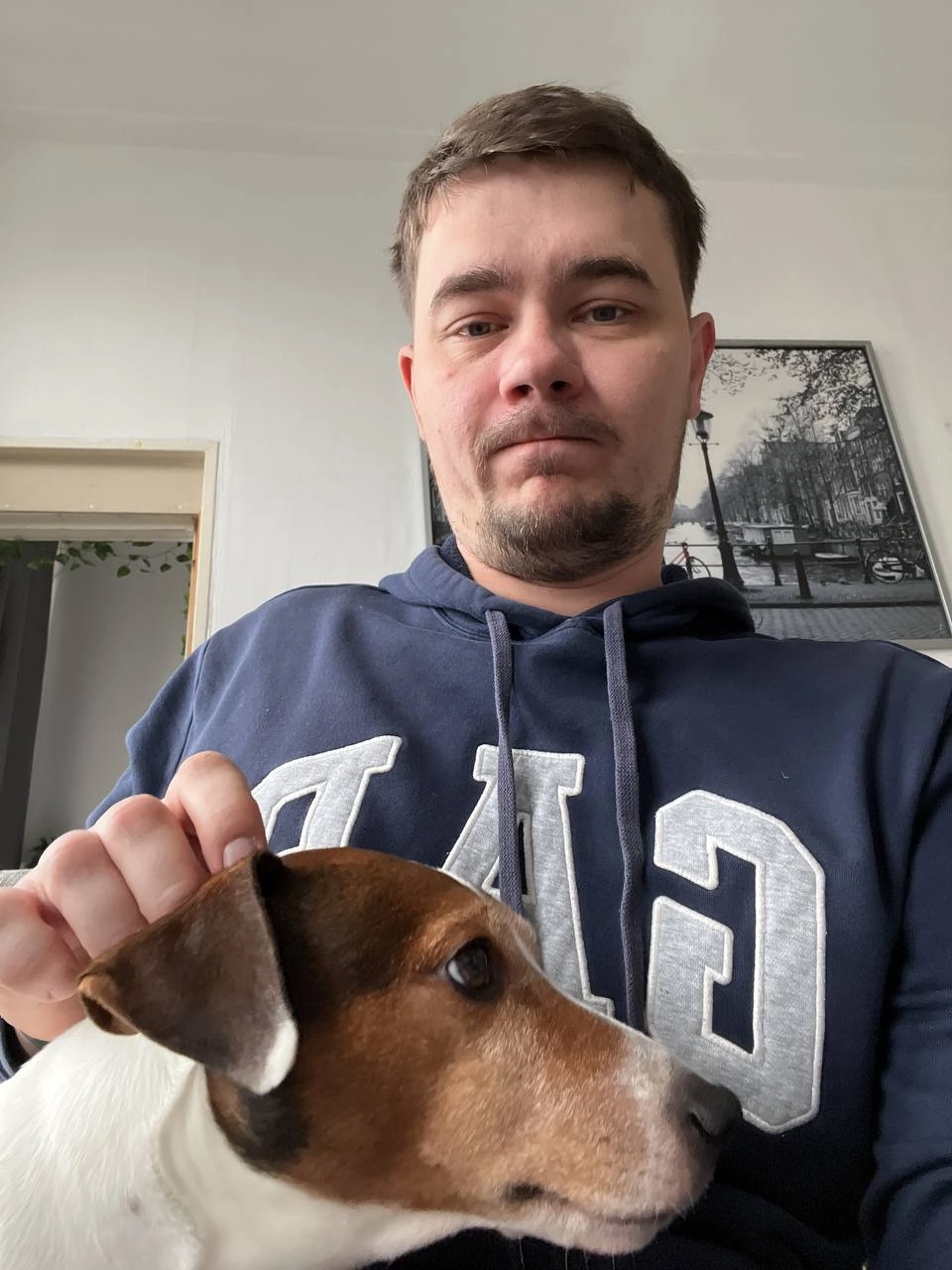Maxim
Scientist in the field of new materials22 years old

The teacher about the student
Maxim is an incredibly hardworking and thoughtful student. He values delving into all the details, obtaining thorough answers to his questions, and not just knowing the grammar but also understanding why it works that way. When Maxim first joined us for his studies, he already had some knowledge, but he struggled to use it actively. His vocabulary was significantly limited. Furthermore, Maxim had a terrible fear of speaking.
— Lera
B2
Maxim's current level
A2
Maxim's level at the time of the entrance interview
18 months
It took Maxim to achieve B2 level
I practically use the language without much difficulty in my everyday life and on business trips. I no longer need to reach for a dictionary to look up specific words, although not all words are familiar, and not all constructions have been studied. The grammar, especially tenses, has become clear to me.
What was your experience with learning the language before starting lessons?
The more or less adequate experience of learning began around the 8th grade. Then there was a break of 4 years during university studies. And now, here I am with you!
How did you feel at the beginning of your studies?
At the beginning, I felt very constrained, afraid to say anything, and didn't know where to start and how to think in the language at all. My level was certainly very low. After a long "lack of practice," you lose the knack, even to the point of using gestures and resorting to phrases like "His name is Maxim, isn't it?"
The most challenging part was starting to speak. If writing was somehow manageable, with a dictionary and a classmate's notebook, speaking in real conversations, feeling comfortable, was very difficult. Making mistakes was also hard.
How do you organize your work with study materials outside of the lesson?
There can be a lot of study materials and assignments, and it's not easy to manage it all. Usually, in the evenings or during lunch, I have some spare time to do a couple of tasks. In the evening, I work really hard on grammar and vocabulary, including reviewing new words and phrases. The most challenging part is using vocabulary and integrating it all together. Scheduling study time is easy when you understand that it's genuinely necessary and not just studying for the sake of it, as if you were in school.
How do you handle your homework?
Most often than not, I divide it into stages, as it's easier, and spreading it over days makes the schedule more flexible. Sometimes, when I get carried away, I can do it all at once. Vocabulary is the trickiest part. Now, I've started making post-it notes with 5 words each: the original word on one side and the translation on the other. Sometimes, I stick these notes around. Most often, it involves adding vocabulary to everyday usage and creating sentences and practicing saying them aloud. Sometimes, I even manage to apply the vocabulary in my work and not just during lessons. It's more enjoyable to memorize 5-10 words per day, rather than cramming in 20. Reviewing words learned during the week and practicing them once a week helps, and taking a short pause before moving on to new words, regardless of the volume, is beneficial.
How do you feel at this stage compared to the starting point?
To say that I feel better is an understatement. It's been a tremendous amount of work. I no longer have to reach for a dictionary to look up words, although not all words are familiar, and not all grammars have been learned. I have a reasonably good understanding of grammar now, though, especially tenses. However, articles are still a pain in the neck.
The most significant change has been the removal of the language barrier as such, and the almost seamless use of English in everyday life and business trips.
What motivates you the most?
Motivation primarily comes from within. After traveling abroad, I realized that language is a tool, not just a subject for study. The ability to communicate and travel without barriers is motivating. Additionally, reading literature, especially in my field, is very satisfying, as well as watching movies that are not available in translation.
What do you do besides studying material?
I read articles and adapted books. This helps me learn new words and lifts my mood when I understand something. Currently, I'm jotting down song lyrics and trying to understand their meaning, which is an interesting exercise. Watching videos on YouTube and movies is also a useful tool. Sometimes, I even translate specialized vocabulary from labels on various cosmetics at the request of my parents.
The most challenging part is to sit down and study. This probably requires more effort and energy than anything else.
What can you recommend for other learners?
The main advice would be to determine if this is something you truly want and to reconsider your attitude toward the language. You have to understand that English is a tool and a gateway to new possibilities, rather than just as a subject. Mechanical memorization of words and grammar without understanding why you're doing it can be very dull. Find methods that suit you for learning vocabulary, ask questions, read original dictionaries, and maybe even some Shakespeare!
Master Your English Once And For All
With Our Help
еще истории наших студентов. Речь о достижении результатов
0%







